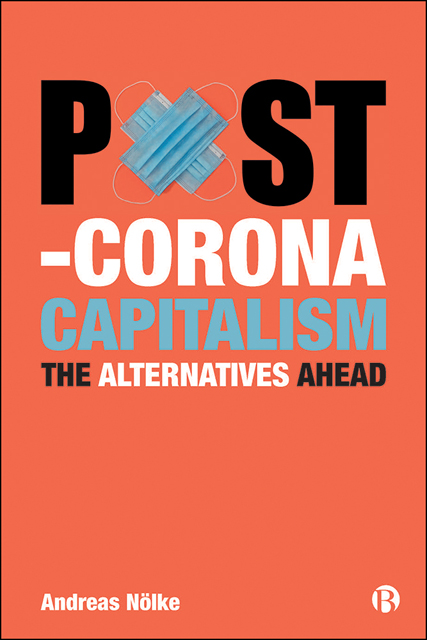Book contents
- Frontmatter
- Dedication
- Contents
- List of Abbreviations
- Acknowledgements
- Preface
- 1 Introduction: Confronting a Multidimensional Crisis of Capitalism
- Part I Capitalism and Society
- Part II Domestic Institutions of Capitalism on the Demand Side
- Part III Domestic Institutions of Capitalism on the Supply Side
- Part IV The International Institutions of Capitalism
- Part V Anthropocene Capitalism
- Part VI Geo-economic Shifts in Global Capitalism
- Part VII Ideologies in Contemporary Capitalism
- References
- Index
Part IV - The International Institutions of Capitalism
Published online by Cambridge University Press: 13 October 2022
- Frontmatter
- Dedication
- Contents
- List of Abbreviations
- Acknowledgements
- Preface
- 1 Introduction: Confronting a Multidimensional Crisis of Capitalism
- Part I Capitalism and Society
- Part II Domestic Institutions of Capitalism on the Demand Side
- Part III Domestic Institutions of Capitalism on the Supply Side
- Part IV The International Institutions of Capitalism
- Part V Anthropocene Capitalism
- Part VI Geo-economic Shifts in Global Capitalism
- Part VII Ideologies in Contemporary Capitalism
- References
- Index
Summary
International (or Global) Political Economy deals with the co-constitution of economic and political processes on the global level. Its core topics include global production, trade and finance, as well as global economic governance and more specific issues such as development and health (Balaam and Dillman, 2014; O’Brien and Williams, 2016; Shaw et al, 2019; Andersson, 2020; Ravenhill, 2020). A core concern is the question of the extent of global cooperation and the role of the international institutions of capitalism in order to support this cooperation. Although a full understanding of these international institutions requires the incorporation of its co-determination with the national institutions of capitalism (Kalinowski, 2019; Nölke, 2019b), the focus subsequently is on the global level.
The coronavirus crisis has substantial repercussions with regard to many issue areas of International Political Economy, although not all are equally affected. In contrast to the GFC, for example, the crisis did not have major repercussions onto the field of global financial regulation. Similarly, the global institutions of development assistance also seem stable. Other issue areas witness important developments. Among the most visible changes in the context of the pandemic is the increased attention given to the stability of global production networks (Chapter 17). The crisis has demonstrated the fragility of these networks in a very visible way, particularly for medical products. Correspondingly, many companies and governments contemplate the reshoring of production – a step that has important repercussions on foreign direct investments; for example, with regard to restrictions for the acquisition of domestic companies by foreign buyers (Chapter 18). These and other government interventions into the economy likely will trigger a wave of investor–state disputes, with potentially massive fiscal implications (Chapter 19). Similarly, the coronavirus pandemic has caused a series of protectionist policies, particularly with regard to the export of medical supplies. Does this indicate a general turn to protectionism or will liberal trade policies prevail (Chapter 20)? A particularly controversial part of the global trade regime was the protection of intellectual property rights with regard to vaccines (Chapter 21). The limited solidarity of the vaccine producer economies in the Global North with the Global South also is mirrored in global health governance which was unable to safeguard an equitable distribution of vaccines (Chapter 22).
- Type
- Chapter
- Information
- Post-Corona CapitalismThe Alternatives Ahead, pp. 107 - 108Publisher: Bristol University PressPrint publication year: 2022



